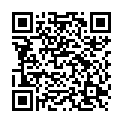|
|
|
| Module code: KI570 |
|
|
4V (4 hours per week) |
|
4 |
| Semester: 5 |
| Mandatory course: yes |
Language of instruction:
German |
Assessment:
Ninety-minute written exam
[updated 20.03.2007]
|
KI570 (P222-0033) Computer Science and Communication Systems, Bachelor, ASPO 01.10.2014
, semester 5, mandatory course
|
60 class hours (= 45 clock hours) over a 15-week period.
The total student study time is 120 hours (equivalent to 4 ECTS credits).
There are therefore 75 hours available for class preparation and follow-up work and exam preparation.
|
Recommended prerequisites (modules):
None.
|
Recommended as prerequisite for:
KI600 Laboratory Course in Information and Communication
KI629
[updated 22.01.2012]
|
Module coordinator:
Prof. Dr. Horst Wieker |
Lecturer:
Prof. Dr. Horst Wieker
[updated 30.06.2017]
|
Learning outcomes:
This course aims to provide students with a thorough understanding of communication protocols. Students will acquire an understanding of the structure of interfaces and related protocols. Particular attention will be given to teaching the corresponding reference models. Understanding protocols is an important prerequisite for developing the protocol stacks that allow heterogeneous environments to communicate with one another.
[updated 13.03.2007]
|
Module content:
1. General principles
2. ISDN-DSS1 (EURO ISDN)
3. OSI model
4. Collision bus
5. Frame relay
6. Management No. 7, Protocols beyond the OSI model
7. Reference model for private networks (TCP/IP)
8. The ATM reference model
9. The mobile to narrow-band gateway reference model
10. H 3xx standards
[updated 13.03.2007]
|
Recommended or required reading:
SIGMUND G., Technik der Netze, Hüthing
BARZ H.W., Kommunikation und Computernetze, Hanser
LIENEMANN G., TCP-IP-Grundlagen, Heise
EBERSPÄCHER J., VÖGEL H.J., GSM, Global System for Mobile Communication, Teubner
ETSCHBERGER K., Controller-Area-Network, Hanser
PERLMAN R. Bridges, Router, Switches und Internetworking-Protokolle, Addison Wesley
SIKORA A., Wireless LAN, Addison Wesley
[updated 13.03.2007]
|
Module offered in:
WS 2018/19,
WS 2017/18,
WS 2016/17,
WS 2015/16,
WS 2014/15,
...
|


